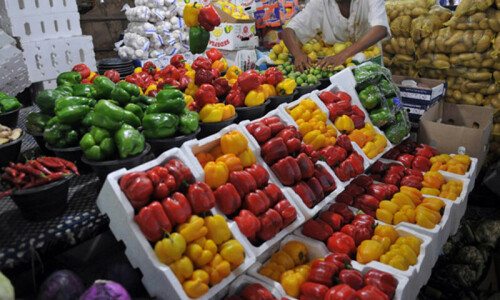
NEW DELHI: India’s government has allowed foreign brands such as Adidas or home furnishings giant Ikea to open 100-per cent owned shops, but will continue to block the entry of supermarkets.
The retail reform allowing wholly foreign-owned “single brand stores” into the country was announced late Tuesday by the left-leaning government, which had initially announced sweeping plans to throw open the sector.
In December, it said it planned to allow in foreign supermarket chains such as Wal-Mart, but it backtracked two weeks later amid parliamentary opposition and protests from small shopkeepers.
Major Western brands such as Adidas already own shops in the booming retail centres and shopping malls of major cities, but they are currently obliged to operate with a local partner.
“Foreign direct investment (FDI) up to 100 per cent, under the government approval route, would be permitted in single brand product retail trading,” the Department of Industrial Policy and Promotion (DIPP) said late Tuesday.
The condition is that the foreign companies owning more than 51 per cent of their shops in India source a minimum of 30 per cent of their products from small-scale local “cottage industry” suppliers.
“The move will not only mean more FDI but lead to employment and also lead to more choices for consumers,” the secretary general of business lobby group FICCI, Rajiv Kumar, said in a statement.
“The sourcing clause will lead to a direct benefit for the SME (small and medium-sized enterprises) sector,” he added.
But Arvind Singhal, chairman of Gurgaon-based retail consultancy Technopak, told AFP he was sceptical that foreign companies would be rushing to open 100-per cent owned stories because of the local supplier condition.
“This is an unfeasible demand. If a foreign brand like Ikea comes to India they want their own suppliers, who are very efficient,” he said.
The insistence that the suppliers be small in scale also limits the options of large companies such as Ikea.
“If they come here and do find good local suppliers, what happens when those suppliers soon become too big to be included? This means that the reform will not mean very much,” he said.
The change to the foreign direct investment rule does not require parliamentary approval. The government U-turn on allowing in supermarkets was forced after an ally in the ruling coalition threatened to quit over the move.
“I wonder about the government’s real intention to reform the retail sector,” Singhal said. “On this thinking, multi-brand supermarkets will never be allowed here.” Other analysts said brands like Adidas, Louis Vuitton or Gucci, which are already in India, might look to expand their presence, while others would be unlikely to jump in with a 100-per cent owned store.
“Action may not come from new players. Only those who understand the Indian markets and its challenges and policies will be interested,” Anil Talreja, a partner with consultancy Deloitte India, told AFP.













































Dear visitor, the comments section is undergoing an overhaul and will return soon.